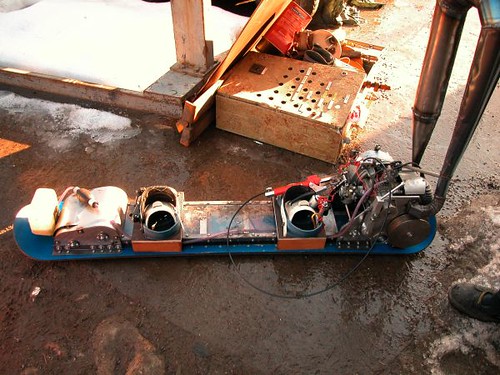clay_from_nj
Well-known member
"Daily impact to your life from being on blood thinners...?" Aside from taking pills? None at all.
1. Typical routine? Pills every day, get tested every 2-4 weeks.
2. Food drink? Eat what I want, in my case, pretty healthy - heavy on the protein and veggies (LOVE fresh spinach) and light on the carbs and sugar. I like a good beer or glass of wine now and then (less than once a month).
3. Side effects? Travel? I always wear a helmet on my motorcycle and bicycle. (Always wore a motorcycle helmet anyway.)
4. Tolerance? Never heard of any issues in that regard.
5. Unexpected surgery? If it's an emergency, they can get your clotting back up with a shot of vitamin K. If you're bleeding a LOT, it would be a problem anyway, even without warfarin. More routine surgery wouldn't be a problem at all.
ASD repair at age 10, Deborah Heart and Lung.
AVR with ATS Open Pivot, 9/21/12, St. Joseph, Denver.
47 years old and still ticking (except for the PVC missed beats).
1. Typical routine? Pills every day, get tested every 2-4 weeks.
2. Food drink? Eat what I want, in my case, pretty healthy - heavy on the protein and veggies (LOVE fresh spinach) and light on the carbs and sugar. I like a good beer or glass of wine now and then (less than once a month).
3. Side effects? Travel? I always wear a helmet on my motorcycle and bicycle. (Always wore a motorcycle helmet anyway.)
4. Tolerance? Never heard of any issues in that regard.
5. Unexpected surgery? If it's an emergency, they can get your clotting back up with a shot of vitamin K. If you're bleeding a LOT, it would be a problem anyway, even without warfarin. More routine surgery wouldn't be a problem at all.
ASD repair at age 10, Deborah Heart and Lung.
AVR with ATS Open Pivot, 9/21/12, St. Joseph, Denver.
47 years old and still ticking (except for the PVC missed beats).
























